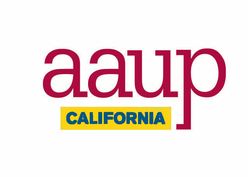The AAUP strongly opposes Donald Trump's unconstitutional and discriminatory ban on entry into the United States for people from certain Muslim-majority countries.
Large numbers of our students and faculty members are affected by the administration’s ill-considered executive order, which violates so many American traditions and beliefs. We fear that the abuse of power we are witnessing will wreak havoc on our institutions of higher education.
Add your name in solidarity against the ban.
Over one million foreign students enrolled in US colleges in 2016, representing a seven percent increase over 2015. They are an important part of our academic communities and should not face this kind of discrimination.
We believe in an America that openly embraces the world with confidence, not one that seeks to hide behind walls and religious bans. We are witnessing a dangerous attempt to expand the executive powers of the president through the misuse of executive orders and to impose an inappropriate worldview on a democratic nation.
Since the announcement of the ban -- issued, ironically, on Holocaust Remembrance Day -- many thousands of students, educators, and citizens have spoken out against it. We will work with our allies, members, and leaders across the country to expose and resist discrimination on the basis of national origin, religion, race, gender, sexual orientation, and disability, and to fight for equitable and welcoming educational environments, requisites for a democratic society.
The AAUP is committed to supporting academic freedom and broader rights to free expression in a world of alternative facts where both higher education and the search for truth are under attack.
We call on faculty, students, and all citizens to remain engaged in the struggle for justice on every campus and in every community. We call on all reasonable politicians to oppose this administration’s discriminatory order.
Stand against discrimination. Sign your name in opposition to the ban.
Thank you,
Rudy Fichtenbaum,
AAUP President

 RSS Feed
RSS Feed